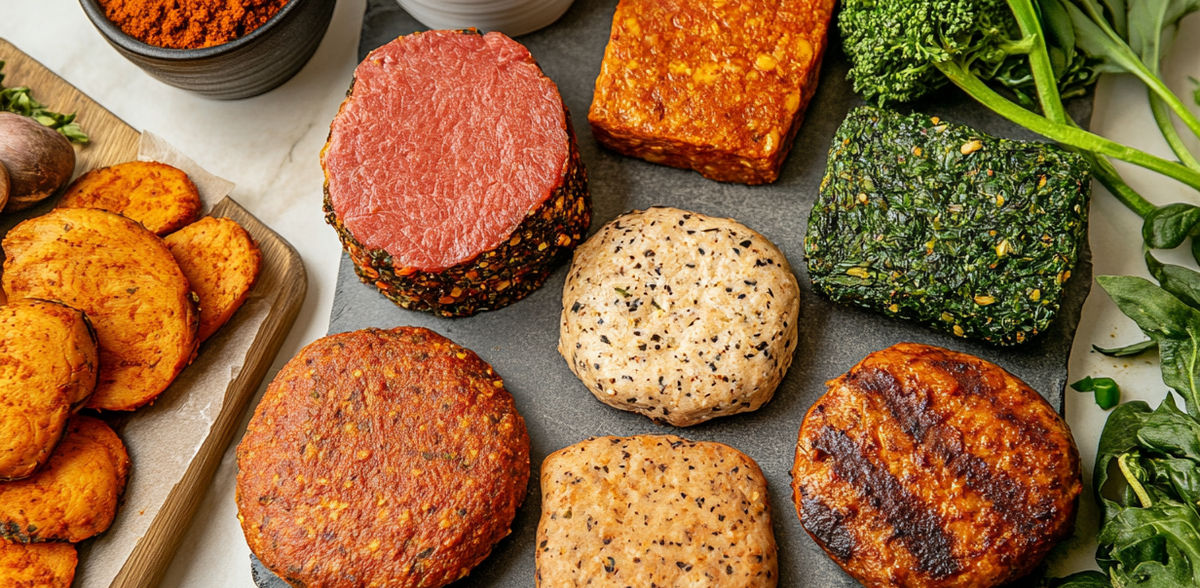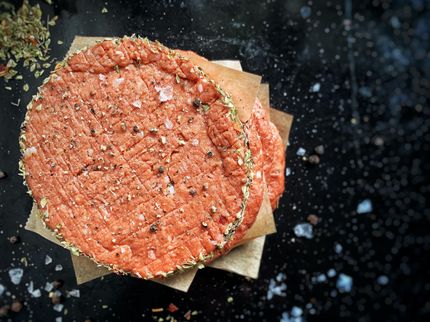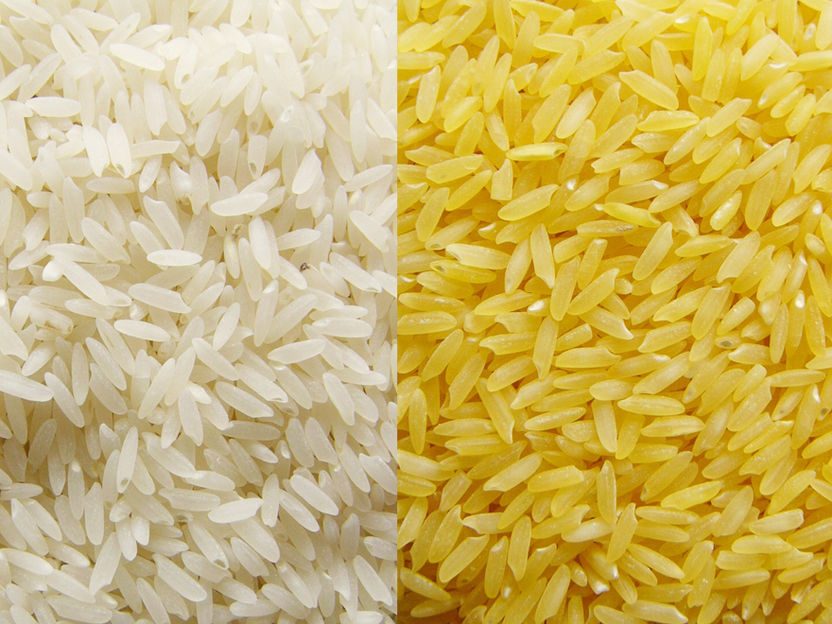These are the strengths and weaknesses of plant-based alternative products in Germany
Soy milk performs significantly better than cow's milk, study calls for less salt for meat alternatives
Advertisement
A ProVeg study of 251 dairy and 422 meat alternatives in 11 countries has come to the following conclusion: Plant-based products can now keep up with their animal counterparts in terms of nutrients and often even surpass them. In Germany, milk alternatives perform just as well and Soy milk even significantly better than cow's milk in a one-to-one comparison. Meat alternatives have more fiber and less saturated fat than their animal counterparts, but also show clear weaknesses: too little vitamin B12, too much salt.
The ProVeg study "Building Bridges between Habit and Health" compared the nutrients of meat and dairy alternatives in Belgium, Germany, Italy, Malaysia, the Netherlands, Poland, Spain, South Africa, the Czech Republic, the USA and the United Kingdom - with those of their animal counterparts and between the countries. The assessment is based on criteria from the World Health Organization (WHO)1, the European Food Safety Authority (EFSA)2 and the Dutch Nutrition Centre3. There are three main arguments in favor of plant-based products.
Low sugar, high fiber, good fat profile
The plant-based milk alternatives examined in the study proved to be low in sugar. "Plant milk is naturally free from lactose, i.e. milk sugar. This is one of its major health benefits. Lactose causes digestive problems for many people," explains Anna-Lena Klapp, Head of Research at ProVeg International. "Now we know that most plant-based alternatives on the market are also generally low in sugar and contain only small amounts of added sugar." In "lactose-free" milk, the lactose is broken down, making it even easier for the body to absorb. Enriched with 120 mg of calcium per 100 ml, the alternatives can also keep up with animal milk in terms of micronutrients.
In contrast to animal meat and sausage products, plant-based meat alternatives provide valuable fiber. "Dietary fiber is only found in plant-based foods," says Klapp. The German Nutrition Society (DGE) recommends at least 30 g of fiber per day to prevent obesity, type 2 diabetes and certain types of cancer.4 Fiber also benefits the intestinal flora, which supports our immune system.5
Another advantage of plant-based dairy and meat alternatives is their fat profile: the fats we consume are crucial to our health. Animal dairy products and meat and sausage products contain mainly saturated fats. Eating less of these can reduce the risk of diet-related diseases, particularly coronary heart disease.6 7 "Plant-based alternative products can be part of a balanced and sustainable diet," concludes Klapp.
Germany: top marks for soy milk, minus points for B vitamins, bottom of the league for salt content
In a case study, the study took a closer look at soy milk. Soy milk has a similar protein content and a comparable protein quality to cow's milk. Low-sugar products that are enriched with vitamins B2, B12 and D as well as calcium can even provide a better overall nutrient profile than cow's milk. In Germany, soy-based milk alternatives received 9 out of 9 possible points. Cow's milk only received 6.5 points due to its saturated fats and high lactose content.
Among the plant-based meat alternatives, bacon, nuggets and sausages as well as chicken breast and strips scored better than their animal-based counterparts, while meatballs, schnitzel, mince and burgers scored lower. Across all categories, plant-based and animal-based meat and sausage products in Germany achieved similar results. "There is a need for optimization both in the salt content of plant-based meat alternatives and in their enrichment with iron and vitamin B12," analyzes Klapp. Only 18 percent of the meat alternatives tested in Germany had a salt content of no more than 1.1 g per 100 g. This puts Germany at the bottom of the country comparison.
Dutch products scored best in most categories. The study attributes this in part to government support through guidelines to improve the nutritional value of plant-based alternatives. Another explanation is the inclusion of plant-based alternative products with good nutrient profiles in the official Dutch dietary recommendations.
Sources
1 World Health Organization (2023): Regional Office for Europe nutrient profile model, second edition. Online unter: https://iris.who.int/bitstream/handle/10665/366328/WHO-EURO-2023-6894-46660-68492-eng.pdf
2 European Food Safety Authority (2024): Health claims. Online at: https://www.efsa.europa.eu/en/topics/topic/health-claims
3 Netherlands Nutrition Center (2018): Towards a more plant-based diet, white paper. Online at: https://mobiel.voedingscentrum.nl/Assets/Uploads/voedingscentrum/Documents/Professionals/Overig/White%20paper%20-%20Towards%20a%20more%20plant-based%20diet%20-%20Dutch%20Nutrition%20Centre.pdf | The Dutch guide is the only official document in Europe to contain standards for plant-based alternative products, including micronutrients.
4 German Society for Nutrition (2021): Dietary fiber. Online at: https://www.dge.de/gesunde-ernaehrung/faq/ausgewaehlte-fragen-und-antworten-zu-ballaststoffen/
5 Soldán, M, Ľ. Argalášová et al (2024): The Effect of Dietary Types on Gut Microbiota Composition and Development of Non-Communicable Diseases: A Narrative Review, in: Nutrients 16(18): 3134. Online at: https://doi.org/10.3390/nu16183134
6 World Health Organization (2023): Saturated fatty acid and trans-fatty acid intake for adults and children: WHO guideline. Online at: https://www.who.int/publications/i/item/9789240073630
7 Maki, K. C., M. R. Dicklin & C. F. Kirkpatrick (2021): Saturated fats and cardiovascular health: Current evidence and controversies, in: Journal of Clinical Lipidology 15(6): 765-772. Online at: https://doi.org/10.1016/j.jacl.2021.09.049
Note: This article has been translated using a computer system without human intervention. LUMITOS offers these automatic translations to present a wider range of current news. Since this article has been translated with automatic translation, it is possible that it contains errors in vocabulary, syntax or grammar. The original article in German can be found here.




































































